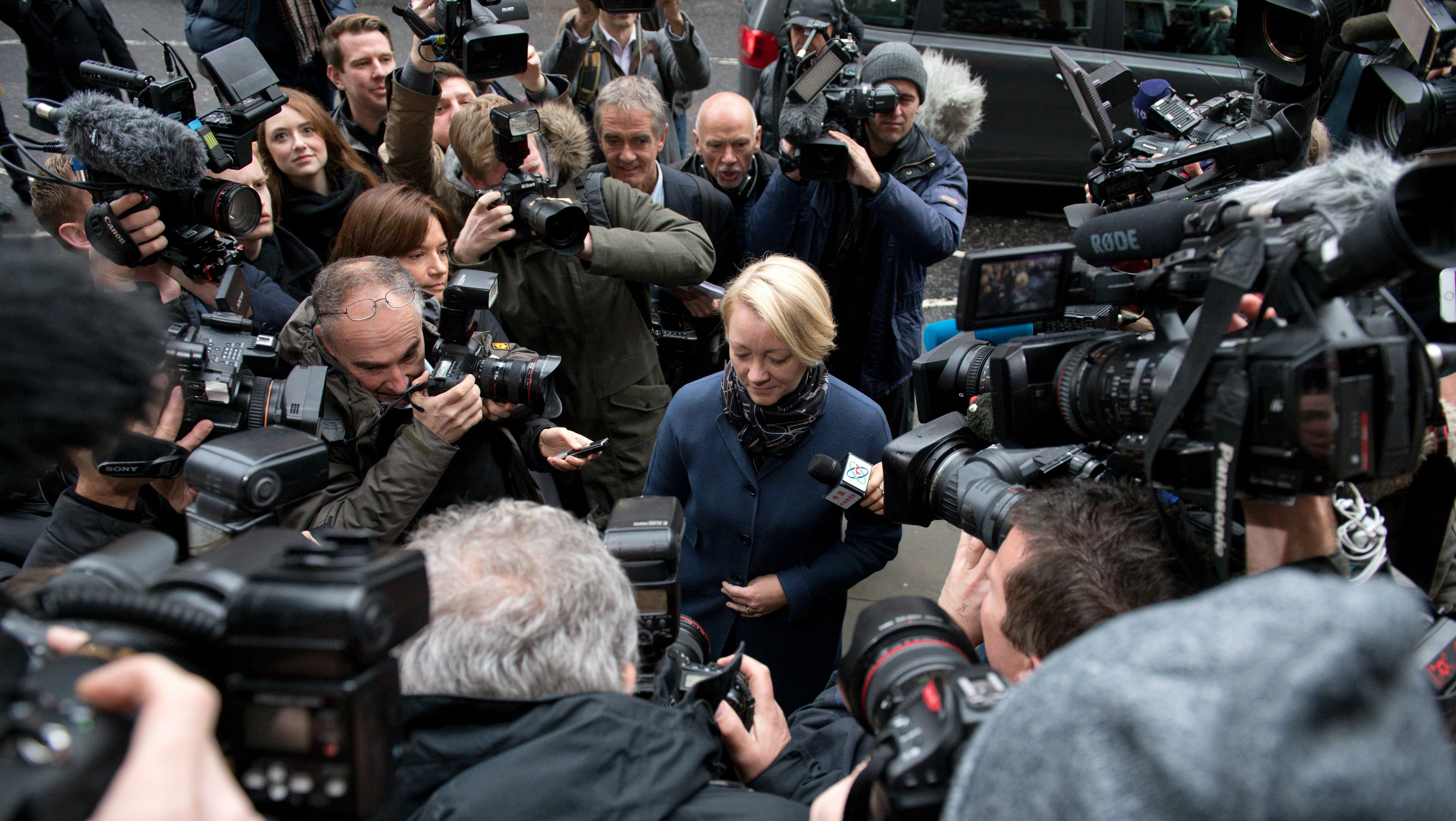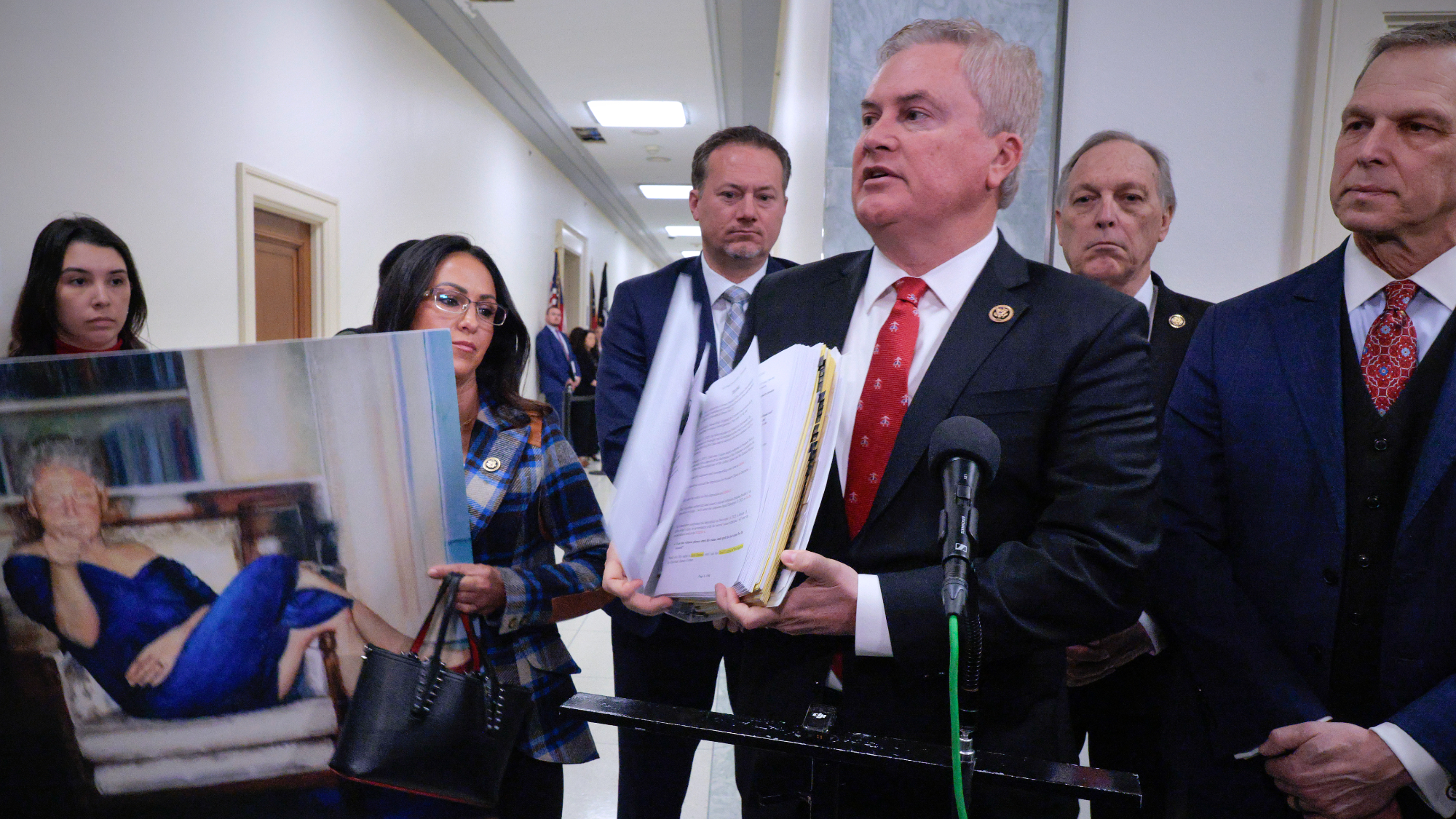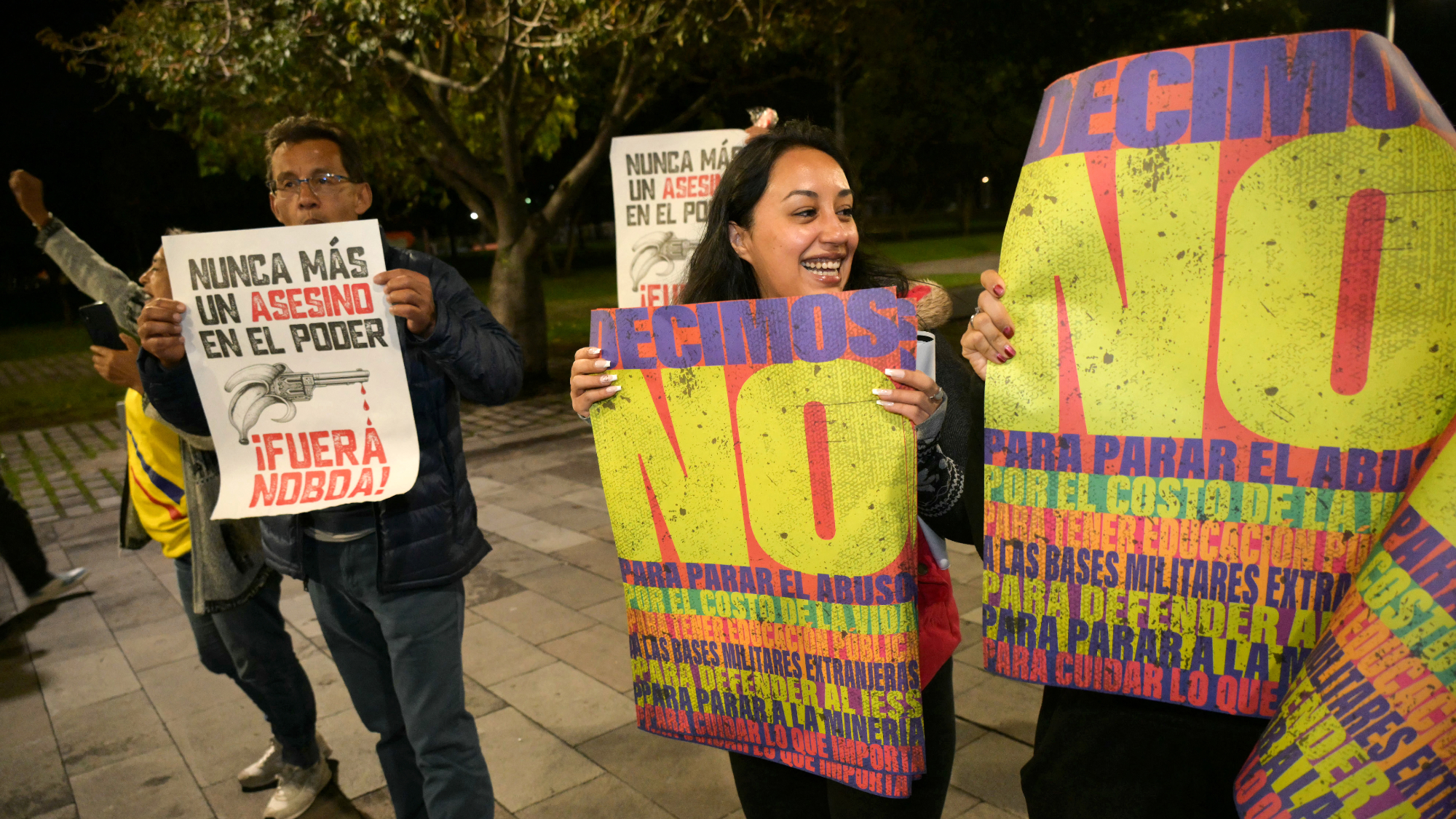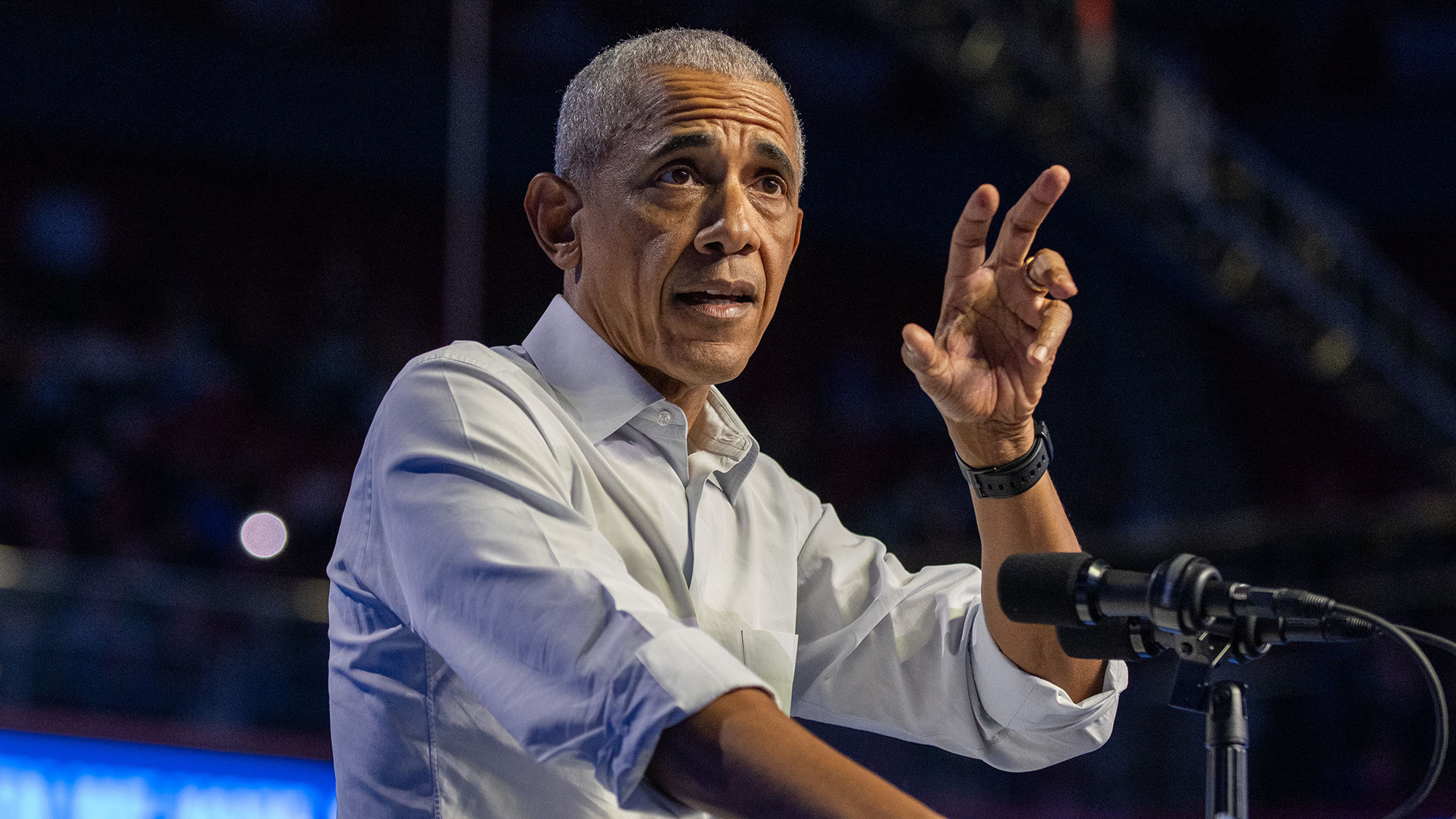Will Julian Assange be forced to leave Ecuador’s London embassy?
WikiLeaks founder reported to have upset recently elected Ecuadorian President Lenin Moreno

A free daily email with the biggest news stories of the day – and the best features from TheWeek.com
You are now subscribed
Your newsletter sign-up was successful
Julian Assange may be forced to leave the Ecuador embassy in London, more than five years after taking asylum there.
According to The Daily Telegraph, Ecuadorian Foreign Minister Maria Fernanda Espinosa told reporters that the situation is “not sustainable”, adding: “No solution will be achieved without international cooperation and the cooperation of the United Kingdom, which has also shown interest in seeking a way out.”
“A person cannot live in those conditions forever,” she added.
The Week
Escape your echo chamber. Get the facts behind the news, plus analysis from multiple perspectives.

Sign up for The Week's Free Newsletters
From our morning news briefing to a weekly Good News Newsletter, get the best of The Week delivered directly to your inbox.
From our morning news briefing to a weekly Good News Newsletter, get the best of The Week delivered directly to your inbox.
The move “could reportedly be a result of the WikiLeaks founder’s involvement in politics”, says Newsweek.
Ecuador’s then-newly elected president, Lenin Moreno, issued several warnings to Assange last year asking him to refrain from commenting on politics relating to the country’s allies.
The Australian-born WikiLeaks founder responded in a tweet in September, saying: “If President Moreno wants to gag my reporting of human rights abuses in Spain he should say so explicitly—together with the legal basis.”
Since taking over the leadership from Rafael Correa in May 2017, Moreno has continued his predecessor’s stance in defending Assange. “I respect the situation he is in, which calls for respect of his human rights, but we also ask that he respects the situation he is in,” Moreno said shortly after taking power.
A free daily email with the biggest news stories of the day – and the best features from TheWeek.com
Assange has been holed up in Ecuador’s London embassy since June 2012, after the UK said he should be extradited to Sweden, where he faced an allegation of rape. Assange said he feared being extradited to the US, claiming his human rights were under threat of being violated there.
In February 2016, a United Nations panel ruled that Assange was being “arbitrarily detained” and should be allowed to walk free. It said he should also be compensated for his “deprivation of liberty”.
But the UK Foreign Office rejected the ruling.The London Metropolitan Police has previously said he will still be arrested if he leaves the embassy, because he failed to surrender to the court in 2012.
The UK has also refused to guarantee that Assange will not be extradited to the US, reports the BBC.
Yesterday a UK government spokesperson said: “The government of Ecuador knows that the way to resolve this issue is for Julian Assange to leave the embassy to face justice.”
Julian Assange: Sweden drops rape investigation
19 May
Swedish prosecutors have dropped their long-running investigation into rape claims made against WikiLeaks founder Julian Assange.
The director of public prosecutions filed a request for his arrest warrant to be revoked today, bringing an end to a seven-year legal standoff.
Assange greeted the news with a tweet of himself in the Ecuadorian embassy in London, where he has been living since 2012.
Assange was accused of raping one woman and sexually assaulting another during a trip to Sweden in 2010, but fled to the UK after being released on bail, seeking sanctuary in the embassy.
He maintains the allegations are politically motivated.
"Assange has long insisted his stay in the embassy is unrelated to the Swedish case, but instead related to possible extradition to the US in connection with WikiLeaks' activities," says Buzzfeed.
His lawyer, Per E Samuelson, hailing the news as a "victory", told Sveriges Radio: "He is free to leave the embassy when he wants. We have won the Assange case. He is of course happy and relieved."
However, the BBC reports Assange could still be detained by UK police and face extradition to the US if he were to do so.
The Metropolitan Police this morning said Assange continued to be wanted for failing to surrender in June 2012 and police were "obliged to execute that warrant should he leave the embassy".
In addition, the New York Times warns that Assange's legal woes are still ongoing across the Atlantic, saying: "The justice department in Washington was reconsidering last month whether to charge Mr Assange for his role in the disclosure of highly classified information."
-
 How to Get to Heaven from Belfast: a ‘highly entertaining ride’
How to Get to Heaven from Belfast: a ‘highly entertaining ride’The Week Recommends Mystery-comedy from the creator of Derry Girls should be ‘your new binge-watch’
-
 The 8 best TV shows of the 1960s
The 8 best TV shows of the 1960sThe standout shows of this decade take viewers from outer space to the Wild West
-
 Microdramas are booming
Microdramas are boomingUnder the radar Scroll to watch a whole movie
-
 How corrupt is the UK?
How corrupt is the UK?The Explainer Decline in standards ‘risks becoming a defining feature of our political culture’ as Britain falls to lowest ever score on global index
-
 Clintons defy House GOP on Epstein subpoenas
Clintons defy House GOP on Epstein subpoenasSpeed Read The House has already received what ‘little information we have,’ the Clintons said
-
 The high street: Britain’s next political battleground?
The high street: Britain’s next political battleground?In the Spotlight Mass closure of shops and influx of organised crime are fuelling voter anger, and offer an opening for Reform UK
-
 Is a Reform-Tory pact becoming more likely?
Is a Reform-Tory pact becoming more likely?Today’s Big Question Nigel Farage’s party is ahead in the polls but still falls well short of a Commons majority, while Conservatives are still losing MPs to Reform
-
 Defeating Russia’s shadow fleet
Defeating Russia’s shadow fleetThe Explainer A growing number of uninsured and falsely registered vessels are entering international waters, dodging EU sanctions on Moscow’s oil and gas
-
 Ecuador rejects push to allow US military bases
Ecuador rejects push to allow US military basesSpeed Read Voters rejected a repeal of a constitutional ban on US and other foreign military bases in the country
-
 Taking the low road: why the SNP is still standing strong
Taking the low road: why the SNP is still standing strongTalking Point Party is on track for a fifth consecutive victory in May’s Holyrood election, despite controversies and plummeting support
-
 Trump attacks Obama as Epstein furor mounts
Trump attacks Obama as Epstein furor mountsSpeed Read The Trump administration accused the Obama administration of 'treasonous' behavior during the 2016 election